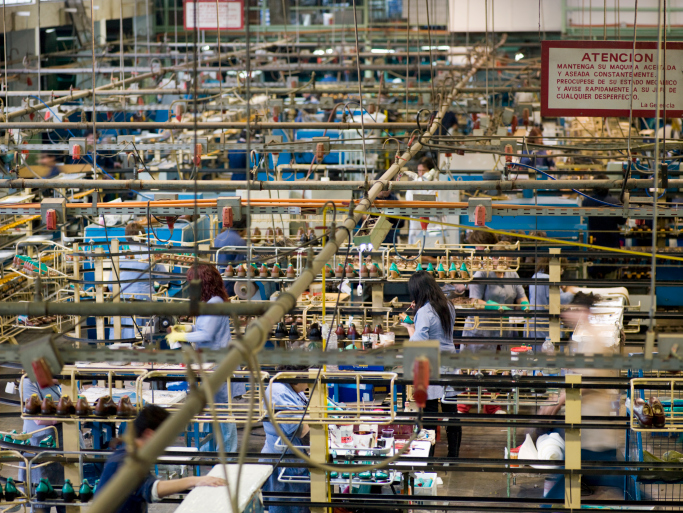
The Economic Policy Institute (EPI) has released a new study, “Trading Away the Manufacturing Advantage,” that puts the blame for the loss of U.S. manufacturing jobs squarely on an increase in the U.S. trade deficit. And the main culprit is China:
Most traded goods are manufactured products. In 2011, about 97.8 percent of U.S. imports from and 66.7 percent of U.S. exports to China were manufactured goods. Trade deficits displace or eliminate jobs, especially in manufacturing.
The EPI study claims that the increase in the U.S. trade deficit with China in the years between 2001, when China joined the World Trade Organization, and 2011 cost the United States 2.7 million jobs, of which 2.1 million were in manufacturing. Net wages lost totaled $37 billion annually, and each of the 2.7 million workers displaced by the U.S. trade deficit with China lost $13,505 in 2011 alone.
The job losses fell particularly hard on minority workers, who accounted for 35% of the lost jobs. The EPI study found that the jobs displaced by growing imports paid minority workers more than jobs in non-traded industries: “6.1 percent more for Hispanics, 12.0 percent more for blacks, 35.0 percent more for Asians, 45.5 percent more for ‘other’ minority workers, and 25.5 percent for all minority workers.”
Manufacturing jobs are also critical to workers with less than a college education. Nearly half of all manufacturing workers have a high school diploma or less, and wages are 16.1% higher for these workers than the average wage in the U.S. economy. Workers with college degrees lost more than 1 million jobs to China as well.
The EPI concludes:
The growth in U.S. trade deficits with China is due, in large part, to China’s currency manipulation and other trade-distorting practices, including extensive subsidies, illegal trade barriers, dumping, and suppression of wages and labor rights. China needs to rebalance its economy by becoming less dependent on exports and more dependent on domestic demand led by higher wages and infrastructure spending. And it must adhere to international rules of the road regarding currency manipulation, trade and industrial policies, and respect for fundamental labor and human rights. … The U.S.-China relationship must be fundamentally changed.
Get Ready To Retire (Sponsored)
Start by taking a quick retirement quiz from SmartAsset that will match you with up to 3 financial advisors that serve your area and beyond in 5 minutes, or less.
Each advisor has been vetted by SmartAsset and is held to a fiduciary standard to act in your best interests.
Here’s how it works:
1. Answer SmartAsset advisor match quiz
2. Review your pre-screened matches at your leisure. Check out the advisors’ profiles.
3. Speak with advisors at no cost to you. Have an introductory call on the phone or introduction in person and choose whom to work with in the future
Get started right here.
Thank you for reading! Have some feedback for us?
Contact the 24/7 Wall St. editorial team.




